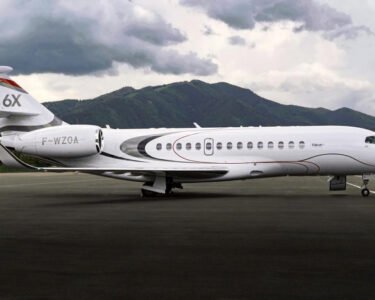In a world where the clamor for sustainable living grows louder by the day, the sharp contrast in travel choices stands as a testament to the ongoing struggle between convenience and conscience. Ireland finds itself at the heart of this debate, with the use of private jets for leisure and luxury drawing ire amidst the climate crisis. Minister Ossian Smyth’s recent remarks branding the practice an ‘obscenity’ underscore the urgency of the matter. It’s February 2024, and the discussion around capping emissions at Dublin Airport is gaining momentum, with 16,000 of the airport’s 32 million passengers opting for private flights, casting long shadows on environmental efforts.
The Rising Tide of Private Aviation
As the COVID-19 pandemic reshaped the world, it also altered the contours of travel. The allure of private jets has surged, with businesses and individuals seeking refuge in the exclusivity, safety, and efficiency they offer. This shift is not without consequence – companies in the S&P index that have adopted private aviation report a staggering 70% outperformance compared to those who haven’t. However, this boon to productivity and safety comes at a steep environmental cost. The low inventory and high demand for private jets spotlight the intricate balance between meeting complex travel needs and the imperative of environmental stewardship.
A Call for Change
The discourse around travel and environmental impact is evolving, with voices like Sinn Fein’s Lynn Boylan advocating for a transition from passenger caps to emissions caps. Such measures aim to curtail the environmental footprint of luxury travel, targeting the ‘unnecessary’ journeys that contribute disproportionately to carbon emissions. The statistics from Dublin Airport paint a stark picture, compelling a reevaluation of travel norms and the sustainability of private aviation in an era of climate crisis.
Sustainable Alternatives Gain Ground
Amidst the growing scrutiny of high-carbon travel, the rise of slow travel offers a glimmer of hope. Initiatives like The Slow Cyclist, championed by Oli Broom, epitomize the shift towards more sustainable, ethical, and locally engaged travel experiences. Cycling from London to Brisbane, Broom’s journey and the luxury cycling trips organized by The Slow Cyclist highlight the potential for travel to enrich without extracting a heavy toll on the planet. Furthermore, the popularity of books like ‘Timeless Paris’ and ‘Extraordinary Collections’ underscores a growing appetite for sustainable exploration and shopping, offering paths to discover the world’s treasures without leaving deep carbon footprints.
In the face of Ireland’s climate crisis, the controversy surrounding private jet usage lays bare the broader challenges of balancing progress with preservation. As the debate around emissions caps at Dublin Airport unfolds, it becomes increasingly clear that the path to a sustainable future is both complex and necessary. The stark differences in travel choices – from the opulence of private jets to the mindful pace of slow travel – reflect the diverse approaches to confronting the climate crisis. Yet, the common ground lies in the shared responsibility to protect the planet, making the discourse around travel and environmental impact not just timely but imperative. In this pivotal moment, the actions taken today will shape the legacy of tomorrow, as the world navigates the delicate balance between luxury and sustainability.




